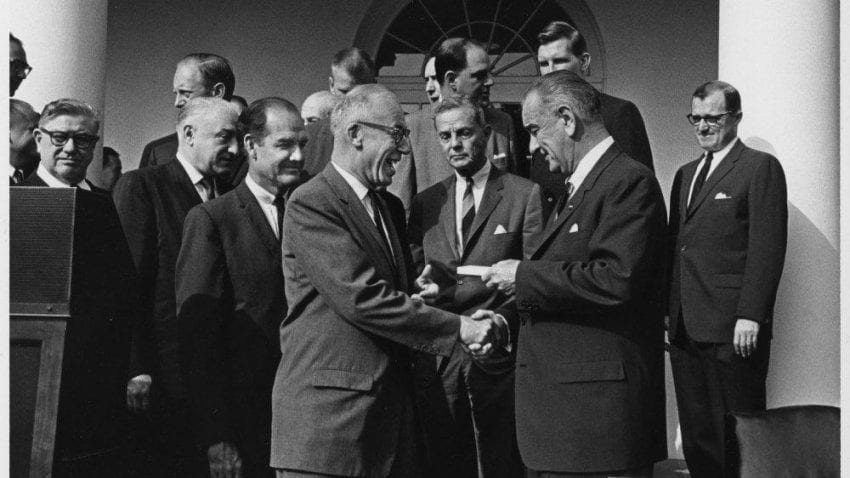We recently had the opportunity to meet with a group of directors from the National Endowment for the Humanities and their sister organization, the National Endowment for the Humanities. The two endowments were founded by an act of congressional legislation in 1965 which was strongly supported by President Lyndon B. Johnson. The NEH was originally created in response to studies that showed an insufficient amount of emphasis on the Humanities as our national was pushing forward in the sciences. There was a general concern that if we would lose our moral and cultural direction and identity if we don’t refocus some of our efforts on developing the fields of humanities in America. Thus the NEH was brought forth to promote and fund the preservation and growth of humanities based research and education in our Nation. This year they were appropriated $155 million to accomplish their work of grant writing. They help facilitate all kinds of research, preservation, access, and educational projects, spanning the fields of language, philosophy, history, sociology, anthropology, and more.
 Taken on Sept. 26th of 1965, President Johnson shakes hands with a West Virginia Congressman at the official signing of the legislature which would bring about the NEH. Photo Credit: neh.gov
Taken on Sept. 26th of 1965, President Johnson shakes hands with a West Virginia Congressman at the official signing of the legislature which would bring about the NEH. Photo Credit: neh.gov
The NEH plays a truly enormous part in defining our identity as people of the United States. They have the power to give or withhold support from research and educational projects which are working to define what it is to be an “American”. When selecting what proposals to fund, the ultimate question the NEH poses is how this proposal will teach us about history because this is key to knowing where we should direct ourselves as a nation, while explorations of our culture helps us grapple with the complex identity of such a diverse nation. However, the reality that the NEH is federally funded raises questions of how purely democratic and representative they can be when choosing what to fund. It seems that it would be easy to get entangled in the partisan politics of the Capitol when choosing which proposals get support. After our interview with the NEH however, it was apparent that the situation is much more complex. The NEH is very committed to being a neutral non-partisan association and instead center their criteria for fundable proposals on how they will contribute to the study of humanities in the US. We asked the panelists if it was difficult for them to keep this goal central as administrations and politics changed around them. They responded that they look to each other for support, especially members who have been their longest. And at the end of the day, sometimes change is for the best. It is necessary to maintain some degree of flexibility in such a democratic position.

One of the really eye-opening aspects of our meeting with the NEH was the realization that our government does so much more than what we hear about on the news. Usually as citizens, we are bombarded with tales of the latest presidential motion, the discord in congress, or recent actions of the armed forces, but the NEH shows how the workings and products of the Federal government are much more complex and multifaceted than you generally hear about in the news. The NEH shows that while parts of our federal government can seem like they’re just running in circles and butting heads, there are many other departments and branches which our doing incredible work for our people. What would our national be like without the libraries, museums, the lessons of our complex history and the town monuments? This realization truly gives me hope for our country as well as for my own future. It revealed to me that there really are people in power who care about the less obvious needs of our society like funding for the humanities to preserve our national sense of direction. There are organizations which create the possibility of greater representation in our country for underserved groups. There is some glimmer of recognition by the Federal government that the humanities and the arts are an indispensable aspect of our national well-being and therefore deserve funding. In addition to these aspects, I feel more positively about looking into federal jobs in my own career future as I realize the possibility of societally-beneficial work in many federally funded organizations.
